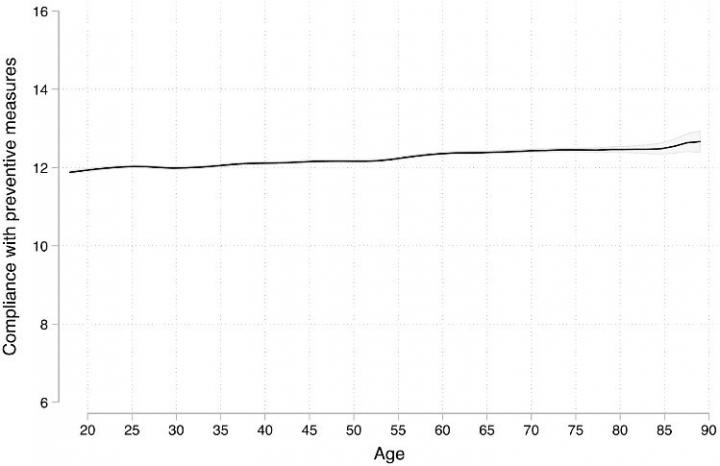Survey results from 27 countries find that elderly people are not more compliant with COVID-19 preventive measures and not more willing to isolate when asked, even though it is established that older adults appear are far more likely to be hospitalized or die from the disease.
The paper was written using survey results from 72,417 people of all ages across 27 different countries. The surveys asked about people's willingness to self-isolate if necessary, as well as their compliance with specific preventive measures, such as hand washing or wearing a mask.

Local regression with a kernel (epanechnikov) function and a bandwidth of 0.8, with 84% confidence intervals included. Image: Daoust, 2020 (PLOS ONE, CC BY)
The analysis suggests that elderly people are no more willing than those in their 50s and 60s to voluntarily self-isolate if they begin to feel ill or if they are advised to do so by a clinician or health official. People aged 60 to 80 are also less likely than younger age groups to wear a mask outside their home. However, older people are more likely to avoid public transportation and to avoid small gatherings or having guests over.
These findings suggest that efforts are needed to improve public health strategies to encourage older adults to comply with preventive measures. A deeper understanding of elderly people's attitudes and compliance could help inform such improvements and, ultimately, reduce the number of deaths to due to the pandemic.





Comments